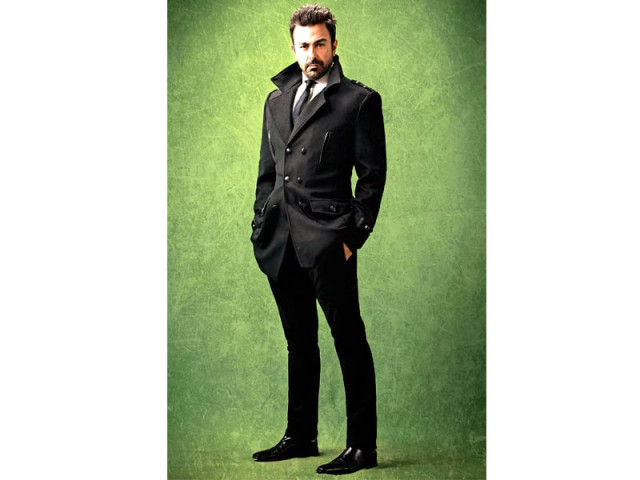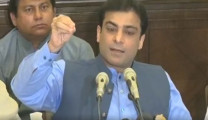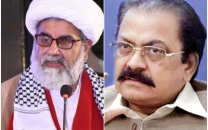The ‘Shaan’ Factor
As Pakistan gears up to release its crop of eclectic films in the months ahead, Shaan seems to be the actor of choice.

As Pakistan gears up to release its crop of eclectic films in the coming months, Shaan seems to be the actor of choice for most film-makers.
The year 2013 is threatening to be a big one for local cinema. For the first time in a long time, there is a new wave of film-makers who are not looking to make typical Lollywood films. We have trailers to prove that they exist — it’s not an ambiguous discussion anymore. This is a healthy sign. There are some heavy-duty films coming out and there’s a genuine effort to tell different stories. But what happens when one man is telling all the stories?
A case in point: Shaan Shahid
Don’t get me wrong. Shaan is a credible and intelligent actor. His choice of roles, over the years, may suggest otherwise, but the man is Pakistan’s biggest film star. His contribution to cinema — even in the form of wild gujjar films — is not small. He’s still here.
Shaan was the poster boy for the so-called ‘revival of cinema’ in 2007 when Shoaib Mansoor’s Khuda Kay Liye released. The film was a mammoth hit and Shaan put up a solid performance but it was a one-off. And there have been some fabulous looking films that Shaan has done since then including Zilay Shah and the recent Ishq Khuda. Yes, I’m smirking. No, I haven’t seen them. I have reluctantly watched the trailers and they paint a strange and horrifying picture.
Shoaib Mansoor’s second feature film, Bol, created a star out of Humaima Malick while Mahira Khan and Atif Aslam grabbed the youth’s attention. A bold effort by Mansoor had Pakistan feeling uncomfortable, talking about things we usually shove under the carpet, quietly. It made us think.
Now fast-forward to 2013 and you’re in for a surprise. Some prolific films are coming out in the upcoming weeks. One of the most-anticipated films of the year is Bilal Lashari’s stylistic debut feature, Waar. Bilal Lashari has our attention partially because of some superlative videos behind him such as Overload’s magnificent Dhamaal and the most credible Atif Aslam video to date, Hungami Halaat. Casting Meesha Shafi and Ali Azmat was a masterstroke because they will pull in urban audiences right alongside Shaan and his ‘mass’ appeal.
So, we’ve got Ishq Khuda and Waar featuring Shaan. Then there is Zeba Bakhtiar and son Azan Sami Khan’s Operation 021, co-produced with Jamshed Mahmood’s Azad Films, that also stars Shaan as a CIA agent. Finally, there is Nasir Tehrany’s Naach, a film revolving around the performing arts, also featuring Shaan — whether it’s a supporting role remains to be seen.
So, we’ve got two films inspired by the war on terror (or so it seems from the trailers) in addition to Khuda Kay Liye (another war on terror theme) and all of them star Shaan. Shaan is multi-faceted so he’s also going to be directing a film — and not for the first time — and it will, in all probability, star Humaima Malick and you guessed it, Shaan. The film is supposedly called Mission Allahuakbar. Shaan has also announced a remake of the timeless Mahesh Bhatt film, Arth. Preliminary media reports suggest that he is indeed planning on casting himself.
Numbers don’t lie
Maybe Shaan fits the bill for ‘all’ of these roles but it doesn’t change the fact that it feels like we have no other actor who can act in movies. It isn’t hard to analyse why Shaan was cast. He can act and he’s very popular with the masses.
Shoaib Mansoor took a leap of faith by casting Fawad Afzal Khan in Khuda Kay Liye. It paid off because one can’t imagine Ali Zafar bringing that same level of intensity to the role. Farjad Nabi and Meenu Gaur cast Amna Ilyas and Khurram Patras and in doing so, they managed to set their film apart from every other film. Zinda Bhaag managed to bag four awards at the Mosaic MISAFF festival in Toronto, including Best Picture by beating out prolific films like Mira Nair’s The Reluctant Fundamentalist.
Shameless flirting, falling in love, dreaming of foreign shores, illegal immigration, the ties of friendship are just some of the themes running through Zinda Bhaag. Khurram and Amna, meanwhile, make an interesting onscreen pair. With Naseeruddin Shah in a supporting role and a special appearance by Manzar Sehbai, the film looks unique.
We love Bollywood so much so let’s take their example. It’s always been a star-driven industry. So, what’s changed? Bollywood is no longer just a star industry. The success of newbies like Anushka Sharma, Ranveer Singh, Ayushmann Khurrana, Aditya Roy Kapoor and Sushant Singh says otherwise.
In recent years, the success of television dramas like Humsafar and Zindagi Gulzar Hai has transformed an actor like Fawad Khan into a national heart-throb. Even a newcomer might do the trick. However, if every film-maker continues to run with Shaan, the excitement of ‘revival’ may just fizzle out or maybe it’s just one woman’s opinion.
Maheen Sabeeh
is a freelance journalist. She blogs at maheensabeeh.wordpress.com and tweets @maheensabeeh
Published in The Express Tribune, August 25th, 2013.
Like Life & Style on Facebook, follow @ETLifeandStyle on Twitter for the latest in fashion, gossip and entertainment.



















COMMENTS
Comments are moderated and generally will be posted if they are on-topic and not abusive.
For more information, please see our Comments FAQ